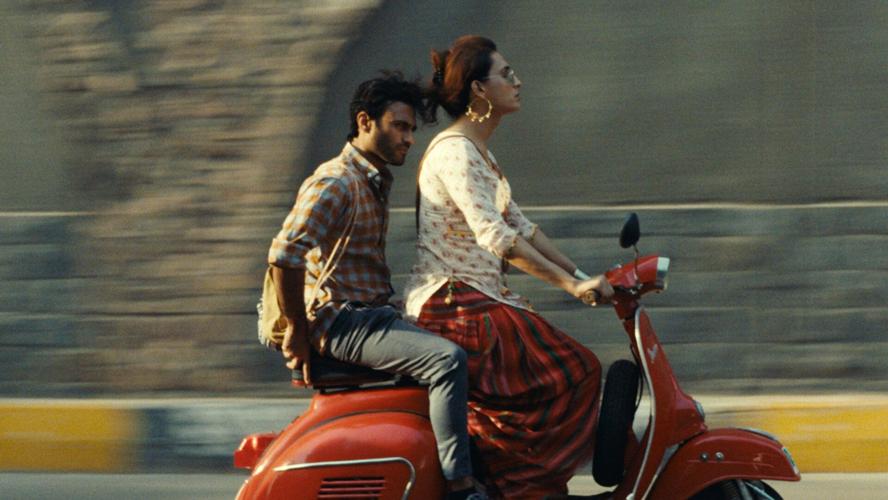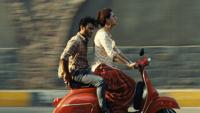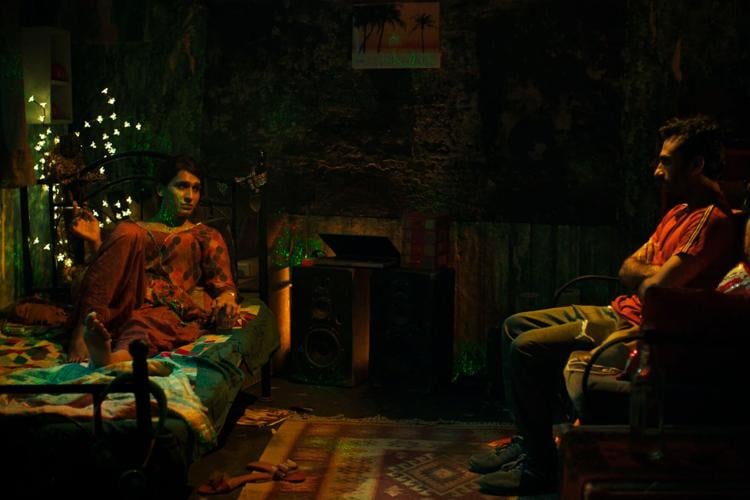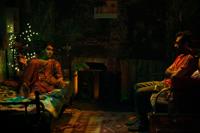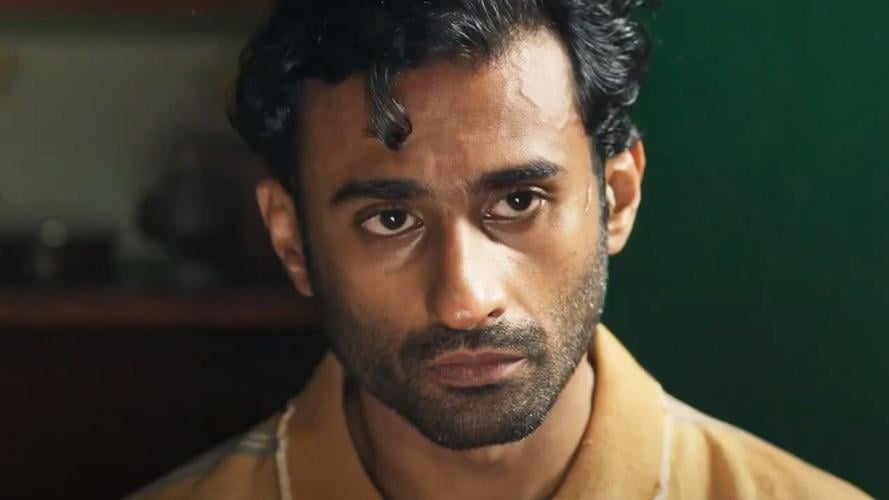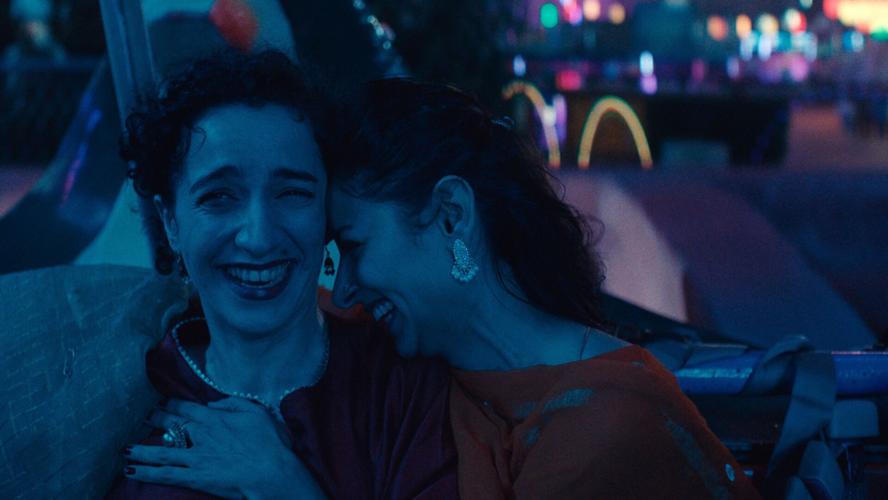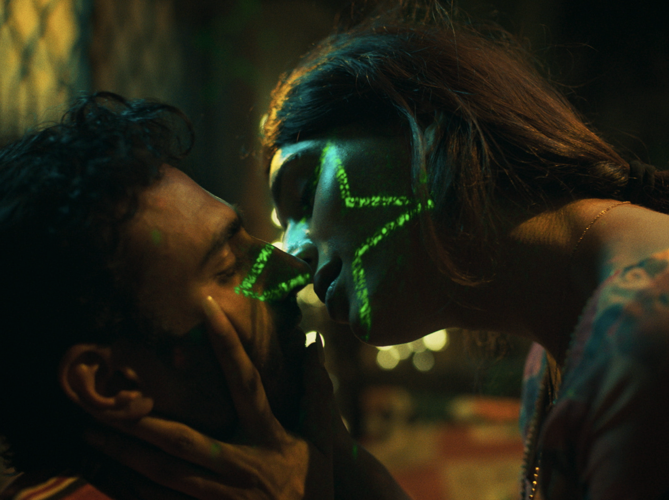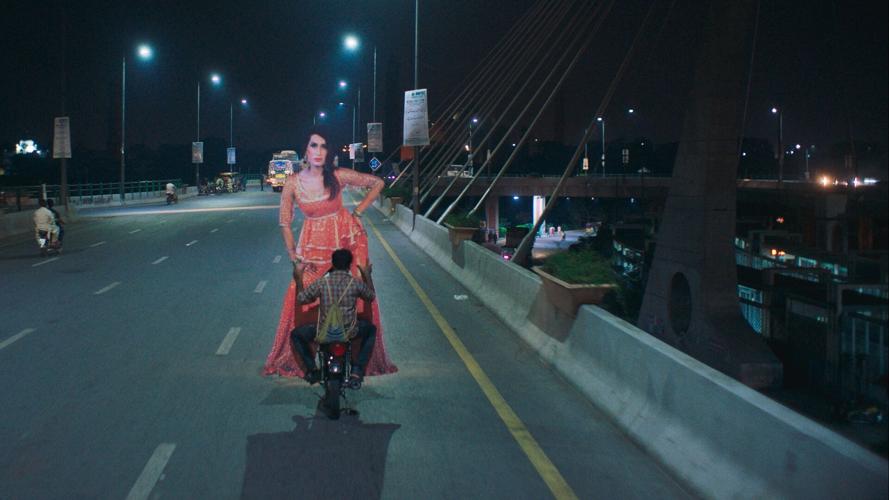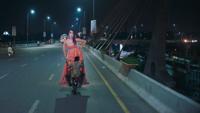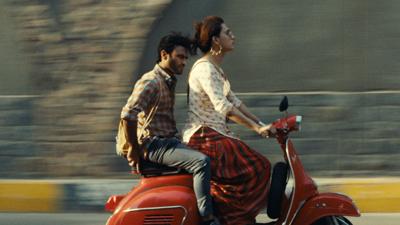This is the official submission from Pakistan to the 95th Academy Awards for Best International Feature. It made the shortlist, which means it came close to getting the nomination. The film premiered at the 75th Cannes Film Festival, as the first Pakistani film to do so. It won several awards there, including a Jury Prize and the Queer Palm. It also won Best International Feature at the Spirit Awards. Yet, it's strange that this film was chosen for that Academy Award category, given how anti-LGBTQ the country is. However, the choice might be understandable because in 2018, Pakistan passed the Transgender Persons (Protection of Rights) Act, which was a step forward for LGBTQ people. That law was overruled this year by Pakistan's Supreme Court, but this film was made and released within that five-year window.
Pakistan wasn't the first country or at least it wasn't the only nation to be predominantly Muslim and predominantly anti-LGBTQ to submit a gay or queer film to the Oscars. Morocco's The Blue Caftan (2023) also made the shortlist for the 95th Oscars. The filmmaker of that Moroccan film had directed a feature before. Saim Sadiq who wrote and directed this film has his feature-debut here. Sadiq made a short film at Columbia University called Darling (2019) that was the first Pakistani film to screen and win an award at the Venice Film Festival. Darling was about the world of transgender dancers.

Alina Khan is a real-life transgender woman from Pakistan. She was cast to be in Sadiq's Darling. Because of that, Sadiq tapped her to be a major character in this film, thus making her the first transgender person to have a lead role in a Pakistani feature. Khan plays Biba, a transgender woman living in Lahore, the second-largest city in Pakistan, lying on the border of India. Lahore is considered the most liberal and progressive city in the country, but still LGBTQ people face issues there.
This film depicts some of those issues and some of the difficulties LGBTQ people face. Particularly, we see some of the bigotries and discrimination a transgender person would experience. Sadiq's film is done in a very frank and Neo-realistic way. It's an authentic and perhaps gritty depiction of life in the more impoverished areas of Lahore. Yet, there are times that Sadiq uses lighting that's colorful and almost painterly. He also utilizes framing and mise-en-scene that encapsulates how the characters are boxed in and trapped in various ways.

Ali Junejo stars as Haider, the youngest son in the Rana family. He looks as though he could be in his mid to late 20's. He's married, but he currently has no job. His wife does have one as a stylist at a salon. She goes out to work, while Haider stays at home and does the housework. Both Haider and his wife live in the home of Haider's father who is widowed. All of them also live with Haider's brother, his sister-in-law and his various nieces. Haider's housework consists of cooking and cleaning for everyone else in that home, as well as care-taking all his nieces.
Haider's father is constantly questioning Haider's masculinity and his manhood. Those questions or rather critiques don't end when Haider gets a job as a backup dancer at a burlesque or what's called an "erotic theater." The perception of his manhood also isn't helped when it's revealed he's backup dancing for Biba, the aforementioned trans-woman.

Rasti Farooq co-stars as Mumtaz, the wife to Haider. In the same way that Haider's manhood is questioned, so is Mumtaz's womanhood. It's not that far from Biba's gender being challenged. Ironically, both Mumtaz and Biba aren't seen as woman-enough. Mumtaz wants to work and be out in the world. However, her father-in-law who is the patriarch of her new immediate family is pressuring her to be a housewife and mother. It's a sexist or stereotypical gender role into which she's being pushed.
If anyone has seen Netflix's Badhaai Do (2022), a LGBTQ Indian film with similar themes, the same predicament is present here. In that 2022 flick, a lavender marriage is under great pressure when the gay man and lesbian woman are pushed to have a baby. Here, it's a similar, if not greater pressure. In Badhaai Do, that pressure was comedic. Here, that pressure is a bit more serious, gravely so. The woman in Badhaai Do wanted to have a baby but on her terms. Here, Mumtaz doesn't seem to want a baby at all.

The film explores both Haider and Mumtaz trying to pursue their passions outside this patriarchal and hetero-normative paradigm. For Mumtaz, it includes attending the titular amusement park. For Haider, it's learning to dance and expressing his sexuality, which includes same-sex attraction. He's clearly awakened to other romantic feelings when he first sees Biba.
Sadiq's narrative also tackles an issue that is rarely touched. There are issues of bigotry and discrimination or sheer misunderstanding within the LGBTQ community. In this film, the focus is on the G and the T, gay people and transgender people. Both groups have had their squabbles or conflicts. The particular squabble here revolves around one particular gay person exhibiting his own sense of transphobia or non-acceptance. Just as some people don't want to see Biba as a woman, at times so does Haider despite his ultimate attraction to her.

The question is why is he attracted to her. Is it because he believes she's a woman or is it because he believes Biba is really a man and being with Biba is a good way to mask his latent homosexuality? It's a complicated scenario that Sadiq concocts here. There's also a really great image of Haider riding a motorcycle, carrying a large cut-out of Biba, which could be a metaphor for how larger than life Biba can be or how great her femininity is, yet like the cut-out how people might not regard her femininity as real.
Not Rated but for mature audiences.
Running Time: 2 hrs. and 6 mins.
In select theaters, according to Oscilloscope Films.

